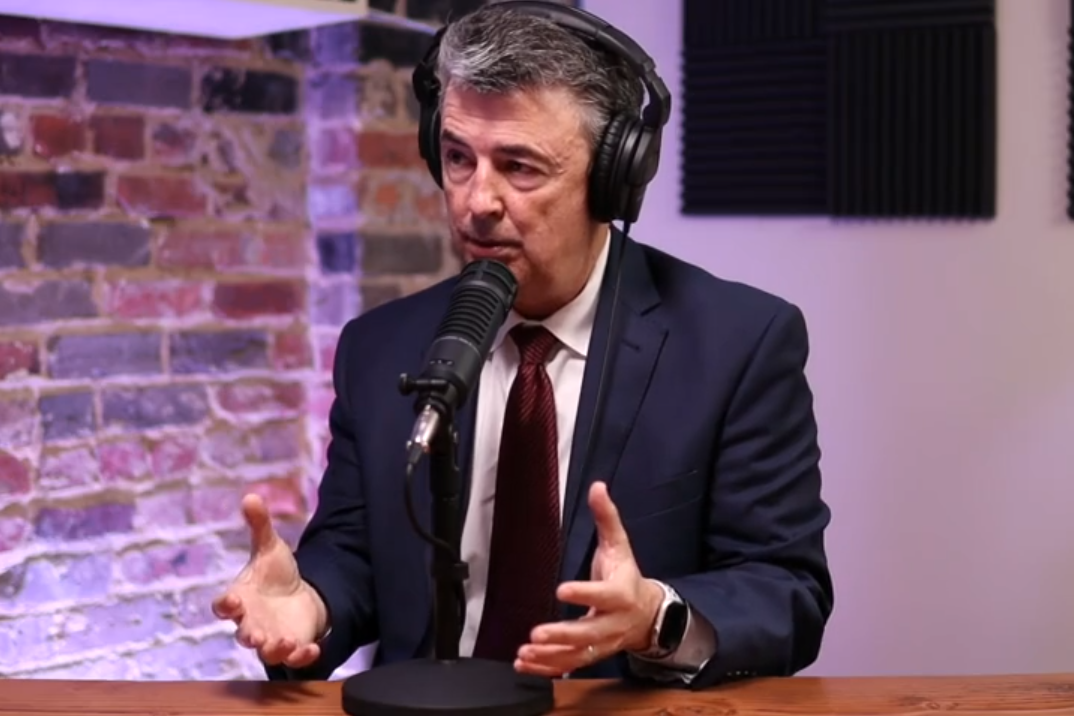In December 2022, U.S. Attorney General Merrick Garland issued a memo telling federal prosecutors to avoid imposing mandatory minimum sentences for most drug-related crimes.
While Garland and others claim mandatory sentences have led to over-incarceration, Alabama's Attorney General Steve Marshall said they are a valuable tool for curbing crime properly applied.
"For almost 40 years, the policy at the Department of Justice, they've said, 'you charge the most serious offense that's provable.' And if you're not going to do it, you need to be able to explain to your supervisor why not. One of the greatest tools that exist to be able to deal with the worst of the offenders are mandatory minimums in many of our drug cases," Marshall said on the latest episode of the 1819 News podcast.
Garland's memo effectively reverses that process, Marshall said, since prosecutors will need supervisor approval to seek mandatory minimum.
"What Garland has simply done is send that strong message that we're not going to do these cases, and he does it under the guise of racial disparity in the application of those cases," Marshall said. "It's a myth."
Whether or not statistics and prisoner demographic data include more of one racial group over another, Marshall said that doesn't "tell the story" of how the law is applied to individuals.
"You've got to commit that crime to get there in the first place," he added. "... Those on the left just kind of generically use this argument of demographic data to show what they want to describe as 'systemic racism within the system. It doesn't prove that at all. In fact, that is such an overused term, and it's part of what has been used to really beat down law enforcement across the country in being able to do their job. But Garland's memo just perpetuates that myth."
Another common "myth" related to mandatory minimums involves criminals receiving long prison sentences for small, simple drug possession.
"It's perpetuated by the left, and it's completely false, and that is that there's people sitting out there for a dime bag of marijuana in our prison system. Not true at all," Marshall said. "And if you look at right now, it's 83% of those in our prison system are there for violent offenses; 17% are for non-violent… Ten percent of those that are in prison, totally, are there for drug offenses… Those are going to be people that are not first-time problematic folks. These have been folks that have been frequent flyers in our system. To be able to get to prison as a non-violent offender, you got to work hard to get there. Violent offenses — a little different story."
Marshall said he'd asked state legislators to "step up" to fill the "void" left by the federal government abdicating its responsibility.
"If the federal government is going to back away from things that they have historically done, that Congress has given them the tools to do, then let's give Alabama prosecutors those same tools," he said.
Part of the state solution for drug and gang activity would be to enact legislation similar to the federal RICO statute, which Marshall said he's discussed with state lawmakers in conjunction with addressing the fentanyl crisis.
"If the federal government is going to back away, then let's fill that void because the crime's not going away. The question is are we going to create opportunities for us to have accountability on that front," he outlined.
To connect with the author of this story, or to comment, email daniel.taylor@1819news.com.
Don't miss out! Subscribe to our newsletter and get our top stories every weekday morning.









